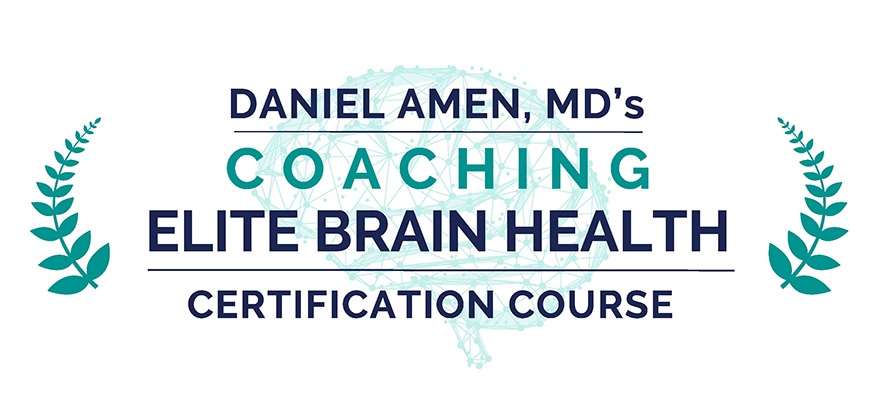
Coaching has evolved significantly over recent years. Many clients have already tried motivational programs, read self help books, or followed step by step systems. They arrive in sessions saying, “I know what I should be doing, but I cannot seem to make it stick.” They are not only asking for more tips. They are asking, “What is happening inside me that makes change so difficult?”
That question naturally points toward the brain. As information about brain health spreads, clients and coaches alike are becoming more curious about how brain function shapes mood, focus, and behavior. This curiosity is fueling a rising interest in brain informed coaching, where simple neuroscience concepts and practical tools work together to support change that lasts.
Contents
Why Clients Are Seeking Brain-Informed Support
People who invest in coaching are often tired of surface solutions. They want to understand themselves more fully and build change that feels honest and sustainable. Brain focused approaches speak directly to that desire.
Clients Want Insight, Not Only Instructions
Many clients can repeat health tips and productivity strategies by heart. They are not short on information. What they are missing is a clear picture of why their behavior does not match their intentions.
When a coach can explain, in plain language, how stress, sleep, thought patterns, and brain wiring influence habits, clients feel less confused. They begin to view their struggles as understandable responses from a hard working brain, rather than proof that they are hopeless. This shift reduces shame and opens space for new effort.
Rising Awareness Of Mental And Brain Health
Conversations about mental health have made it more acceptable to talk about mood, anxiety, and burnout. Alongside this, people are learning that brain health influences how they feel, think, and perform each day.
When coaching honors these connections, clients sense that their coach sees more than their goals. Brain informed coaches pay attention to sleep, movement, nourishment, stress, and connection, and they help clients notice how these factors shape their mental state and decision making.
How A Brain Lens Changes Coaching Conversations
Brain informed coaching is not simply about sprinkling scientific words into sessions. It changes how coaches listen, frame questions, and build action plans.
From Pushing Willpower To Working With Biology
Traditional approaches can unintentionally sound like kinder versions of “try harder.” When clients do not follow through, the focus often lands on motivation or discipline.
A brain aware coach asks different questions. Instead of saying, “You committed to this, why did you not do it?” they might ask, “What was happening in your body and mind when it was time to act?” This opens the door to talk about exhaustion, fear, distraction, or emotional overload that got in the way.
Linking Behavior To Brain States
Brain informed coaching helps clients connect patterns in their behavior to patterns in their brain state. Together, they might notice:
- How choices change when the client is rested versus sleep deprived.
- How stress days lead to different decisions than calm days.
- Which times of day bring the most focus or the most brain fog.
With that awareness, coaches and clients can design plans that respect real capacity instead of assuming that every hour of the day is equal.
Why Brain-Informed Approaches Benefit Coaches
The movement toward brain based coaching does not only help clients. It also supports coaches in offering clearer, more confident guidance.
Better Explanations For Stuck Moments
Every coach meets clients who feel stuck despite genuine effort. Without a brain perspective, it is easy to assume that the client simply lacks commitment or that the chosen method is flawed.
Understanding how the brain chooses safety, habit, and energy conservation helps coaches see stuckness more accurately. Often, the client’s nervous system is trying to protect them from perceived risk or overload. Recognizing this leads to more precise questions and targeted adjustments.
More Personalized Plans For Different Brain Styles
Brain informed frameworks emphasize that people do not all think, feel, or react the same way. Some clients lean toward anxious thinking, others toward impulsive choices, and others toward rigid routines or scattered focus.
With a brain lens, coaches can tailor strategies instead of relying on a single formula for every person. For instance, a client with anxious tendencies may benefit from slower pacing and more reassurance, while a client with impulsive tendencies may need clear boundaries and short, engaging tasks.
Increased Professional Credibility
As clients become more informed about health and science, many seek practitioners who can connect practical coaching with research based ideas. Coaches who understand fundamental brain concepts can speak to these interests without claiming to provide medical treatment.
When used within ethical boundaries, brain informed language can differentiate a coach and signal that they are committed to continuous learning.
Core Principles Of Brain-Informed Coaching
Brain informed coaching is guided by a set of key principles rather than a single rigid method. These principles influence how coaches support clients over time.
Attention To Everyday Factors That Shape Brain Function
The brain is affected by daily habits such as sleep, nutrition, movement, and exposure to chronic stress. Coaches do not diagnose conditions, yet they can help clients notice how these elements interact with their goals.
For example, a coach might help a client see that late night work or scrolling interferes with sleep, which then affects patience, creativity, and follow through the next day. Linking these dots often makes lifestyle changes feel more meaningful.
Focus On Emotional Safety And Regulation
The brain learns and plans best when it feels reasonably safe. Brain informed coaches pay attention to emotional signals during sessions and slow down when clients appear flooded or shut down.
They use grounding questions, gentle pacing, and non shaming language. Standards remain high, but the path to reach them respects the client’s nervous system rather than pushing it past its limits.
Emphasis On Small, Repeatable Actions
The brain changes through repetition more than inspiration. While big insights feel exciting, new neural pathways form when simple actions are repeated often.
For this reason, brain informed coaching tends to highlight small steps, habit pairing, and realistic routines. These tools lower overwhelm and make it easier for new behaviors to become automatic.
How Coaches Are Adapting To This Emerging Focus
As interest in brain informed approaches grows, many coaches are expanding their education. They want to feel confident bringing brain concepts into their work in a grounded, ethical way.
Pursuing Ongoing Education And Structured Training
Some coaches begin with introductory books or podcasts, then move into more organized learning experiences. Specialized courses and certification programs in brain health and coaching can provide frameworks, tools, and practice scenarios.
The most helpful programs often focus on translating research into clear language and coaching strategies, so that ideas can be used right away with clients.
Blending Brain Concepts Into Existing Coaching Niches
Brain informed thinking can enrich many coaching specialties.
- Health coaches can highlight how brain health connects with lifestyle choices and stress responses.
- Business and executive coaches can link focus, decision making, and emotional balance to brain states.
- Relationship coaches can explore how past experiences and brain patterns influence communication and attachment.
In each case, the brain serves as a helpful lens that deepens work already underway.
Looking Ahead: The Role Of Brain-Informed Coaching
The increasing interest in brain informed coaching reflects a broader shift toward more integrated support. Clients want approaches that recognize their bodies, minds, and life stories as interconnected.
Coaches who invest in understanding the brain are better equipped to answer questions like, “Why is this so hard for me?” and “What can I do that fits the way I am wired?” They can offer explanations that are both compassionate and practical, which tends to reduce frustration on both sides of the coaching relationship.
As this focus spreads, brain informed approaches are likely to become part of the expected skill set for many coaches. Those who begin developing these skills now have an opportunity to grow with the field and to offer clients support that feels both scientifically grounded and deeply human.

